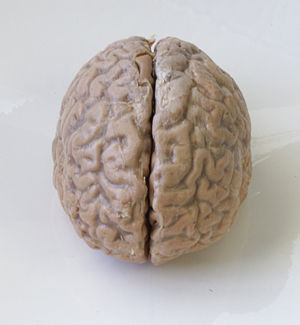
On pp. 26-27 of this Teshura (memento), the Rebbe responds to someone who inquires about the Rebbe’s “views on a certain movement.” In the letter, the Rebbe doesn’t identify the movement in question, and doesn’t respond to the query. Rather, the Rebbe points out that the questioner has neglected to discuss that which is of true importance:
The essential information about yourself, your life and work, is missing in your letter. I refer to the Psak-Din [ruling] of our Torah, Toras Chayim [a Torah of life], to the effect that Jews are mutually responsible for one another. Accordingly, one’s daily life is not a private affair, but it affects all other Jews. All the more so when the individual in question belongs to the young generation, full of youthful energy and rich in opportunities, especially at the stage of life when one is not yet weighed down by economic responsibilities.
It is therefore the duty of every Jew, especially of one in your position, to do everything possible to spread Yiddishkeit, i.e., the actual fulfillment of the Mitzvoth Maasiyos [practical observance of Mitzvos], in his immediate circle and wider environment; to make others aware that Yiddishkeit is not something to remembered on certain occasions, or on certain days of the year, like Shabbos and Yom Tov or the “High Holidays,” but something to be lived and practiced every day.
Moreover, such efforts are not only channels for receiving G–d’s blessings in one’s own need, but are also vital for the welfare and survival of our people as a whole, concerning which you express understandable concern.
In light of the above, it is not out of place to ask you: What have you—with your background and opportunities—accomplished in the last few months, and years, along the lines indicated above? Have you utilized all your capacities and opportunities, not only in your immediate family, but also among friends and associates, that they be imbued with the love of G–d and the fear of G–d and live up to the Torah and Mitzvoth? ...
I will be glad to hear good news from you that you are indeed active along the above lines, and in an ever-growing measure, as we have been instructed “Maalin b’Kodesh [one should rise ever higher in matters of holiness—Berachos, 28a].”
As for my personal views on this or that movement, I do not see how this can concern the fulfillment of your duties and obligations, as mentioned above, which are surely quite clear.
The Rebbe was sending this young man a very clear message. Although Hashem gave us our intellect to use, not every kind of use of the intellect is desirable. It could be used in a way that is damaging, or simply unnecessary. Rather, the intellect must be used constructively, for the purpose of Torah study, pursuing Mitzvah observance, or constructive mundane endeavours, and not wasted on petty distractions. Intellectual curiosity is a natural human trait, but in order to bring benefit to oneself and others, it must be harnessed and directed appropriately.
Thus, as stated in Tanya ch. 41, when laying one’s Tefillin one should commit oneself “not to use the wisdom and understanding in one’s soul for any purpose other than Hashem alone.” This reminder is especially necessary in the modern information age, when so much information vies for our attention.
Thus, we should not just read everything that piques our interest. Instead, before we focus our minds on studying something, we should ask ourselves: “What constructive purpose will this serve? Can my time and mental energy be better spent, with something that takes priority?” and act accordingly.
(See also pp. 27-28 of Chanoch Lena’ar, or a version of that booklet printed elsewhere, available online from here to here, for a description of a particularly advanced standard of such a focus.)
Thus, as stated in Tanya ch. 41, when laying one’s Tefillin one should commit oneself “not to use the wisdom and understanding in one’s soul for any purpose other than Hashem alone.” This reminder is especially necessary in the modern information age, when so much information vies for our attention.
Thus, we should not just read everything that piques our interest. Instead, before we focus our minds on studying something, we should ask ourselves: “What constructive purpose will this serve? Can my time and mental energy be better spent, with something that takes priority?” and act accordingly.
(See also pp. 27-28 of Chanoch Lena’ar, or a version of that booklet printed elsewhere, available online from here to here, for a description of a particularly advanced standard of such a focus.)
No comments:
Post a Comment
Thank you for your comment! :)